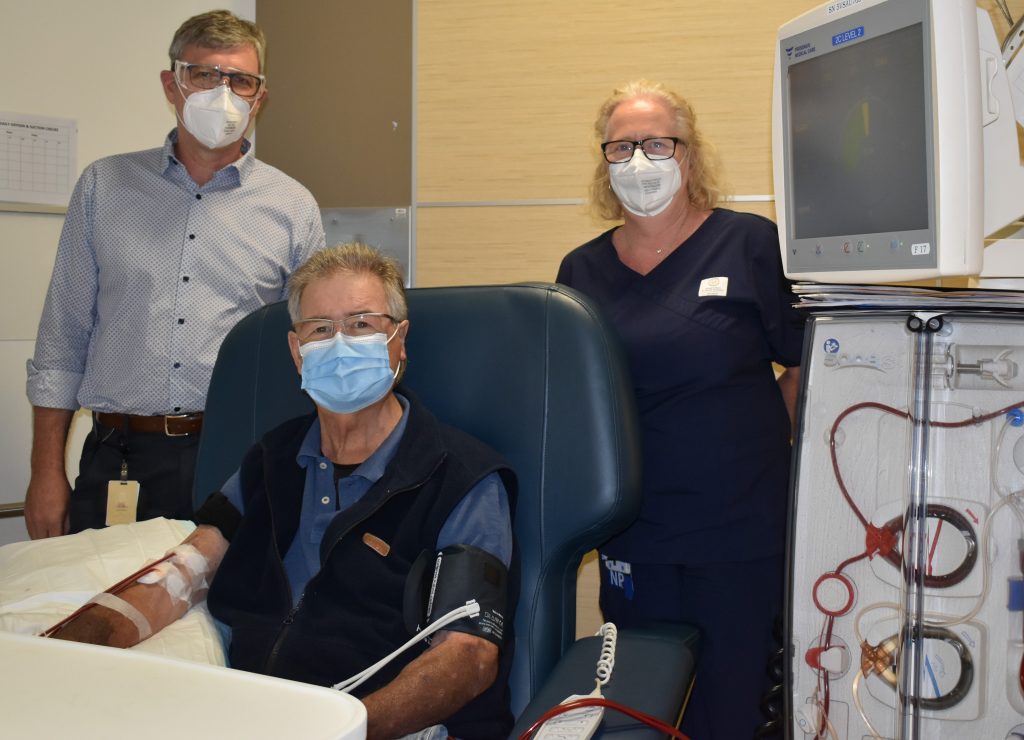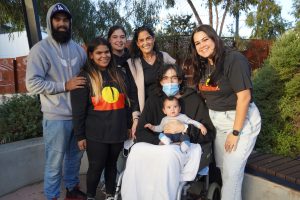One group of patients who have demonstrated flexibility during the pandemic is those receiving renal dialysis.
Central Adelaide looks after around 650 patients for haemodialysis right across the state. Most attend three times a week to the RAH or a community-based centre, with some able to receive dialysis at home.
During the pandemic, there has been a lot of planning and movement for both patients and staff to ensure dialysis could continue safely.
Professor Stephen Mcdonald, Director of Dialysis at Central Adelaide says dialysis patients are a particularly vulnerable and at-risk group.
“The experience internationally early on in the pandemic was that there was substantial risk for dialysis patients, and we took that on board in our planning in the response here in South Australia.”
The spread of patients across the community presented challenges and the team had to put together new protocols and processes to keep people safe.
The dialysis unit at the RAH was taken over by the new Covid Care Centre, with chairs being moved elsewhere in the hospital to ensure treatment wasn’t disrupted. COVID-positive dialysis patients also receive dialysis at the Centre.
“We’ve had to shift people at very short notice so they can receive treatment. We’re very grateful for the cooperation and understanding of our patients,” Prof McDonald said.
To assist with the logistics of coordinating patients across a busy system, a new State-wide Flow Coordinator role was created at the start of the pandemic and activated when the borders opened in November
Nurse Practitioner Fiona Donnelly has spent the past three months centrally managing and coordinating COVID-positive haemodialysis patients, including the transport of patients, dialysis units, liaising with the COVID response teams, medihotels, inpatient wards and Covid navigators.
“Staff and patients have had to move around and adapt to new locations, but they have been amazing. It’s been great teamwork and collaboration over this time,” she says.
To help protect patients during the pandemic, the renal dialysis team communicated widely with them around mask wearing, physical distancing and the benefits of vaccination.
“We had to pivot to communicate electronically with our patients regularly to keep up with the changing COVID information.
“We had a strong push towards vaccination and had high rates of patients who were double vaccinated, and now with the third dose as well over the Christmas period.”
To help detect COVID early, all patients undergo Rapid Antigen Testing each time they attend for dialysis. If they test positive, patients are transferred to the RAH COVID Care Centre to undergo their dialysis.
Image: Professor Stephen Mcdonald and nurse practitioner Fiona Donnelly with Lucas, who is receiving dialysis at the RAH.



